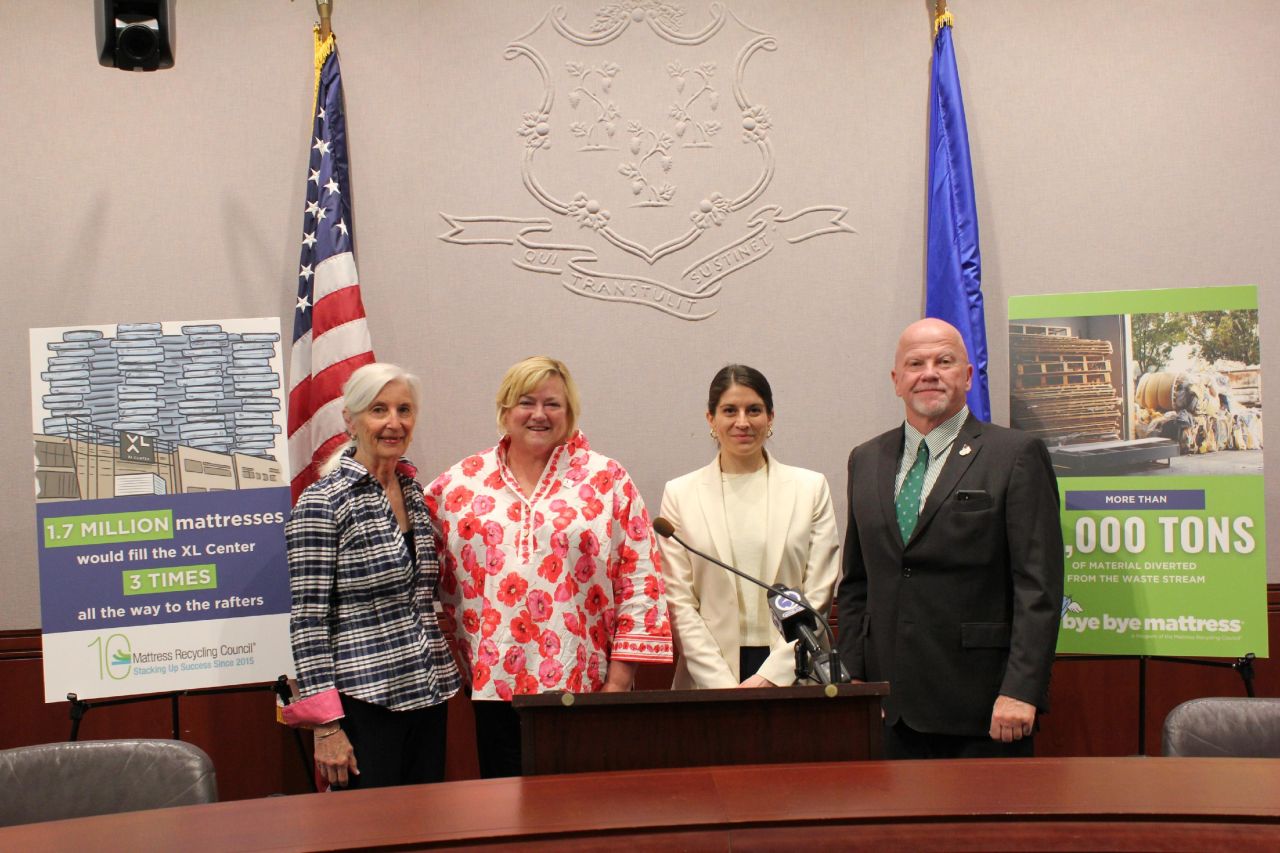The International Sleep Products Association and the Mattress Recycling Council proudly celebrate the 10-year anniversary of the country’s landmark industry-led mattress recycling program, made possible by Connecticut’s innovative mattress recycling law, the first of its kind in the United States. Since MRC launched the Bye Bye Mattress program in 2015, more than 1.7 million mattresses have been recycled in Connecticut, successfully diverting more than 30,000 tons of foam, fiber, steel and wood from the state’s waste stream, according to a news release.
To mark this important milestone, ISPA and MRC, in partnership with the Connecticut Department of Energy and Environmental Protection, hosted a special event May 28 at the Legislative Office Building to honor a decade of success in waste diversion, environmental stewardship and community impact. Speakers discussed the history of how the mattress recycling bill became law and the successes the program has seen since its inception.
“The Mattress Recycling Program in Connecticut proves that smart, collaborative recycling policy works,” said Alison Keane, president of ISPA and MRC. “It’s helped communities save millions in disposal costs, reduced illegal dumping and created local jobs, while transforming waste into valuable new products. We thank the Department of Energy and Environmental Protection for their partnership in improving Connecticut’s waste streams. We are thrilled with the success of mattress recycling in Connecticut over the past 10 years, and we look forward to the next 10.”
MRC’s Bye Bye Mattress program has set a standard for industry-led recycling initiatives. With convenient, no-cost recycling options available in 157 municipalities, including drop-off sites, seasonal collection events and through participating curbside pickup haulers, it is easy for Connecticut residents to responsibly dispose of old mattresses. The program has also reduced illegal dumping and supported recycling partnerships with more than 390 institutions, including hotels, housing complexes, healthcare facilities and universities.
The old mattresses are recycled into products like carpet padding, insulation and steel components, while cutting down the need for costly waste disposal for municipalities by shipping to out of state landfills. At a time when Connecticut continues to examine its waste management strategy, MRC’s Bye Bye Mattress stands out as a clear success story, the release said.
“The tremendous economic and environmental impact that MRC’s Bye Bye Mattress program has had in Connecticut is indicative of the power and importance of extended producer responsibility programs,” said Katie Dykes, Commissioner of DEEP. “By significantly reducing unnecessary materials from our waste stream, these programs save Connecticut cities and towns substantial costs, reduce the pressure on our already strained waste management and disposal system, and rightly place the end-of-life management of these materials on the companies and firms that bring them to market and realize the profits from their sale.”





